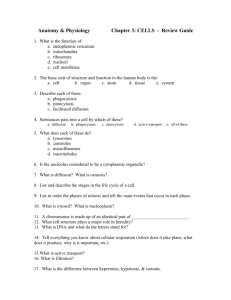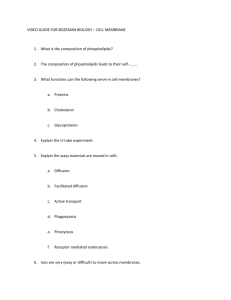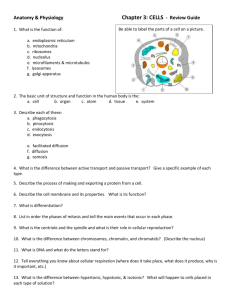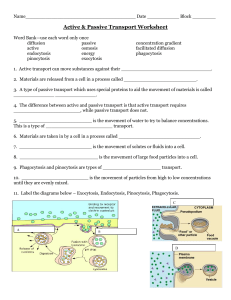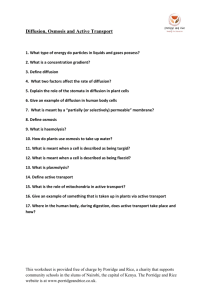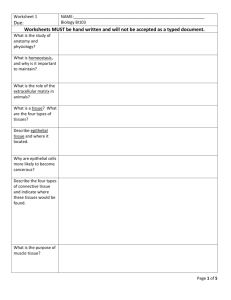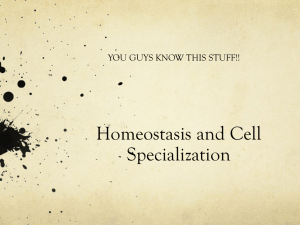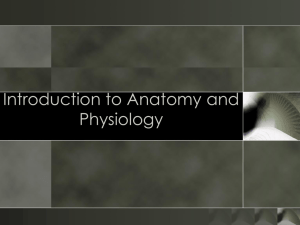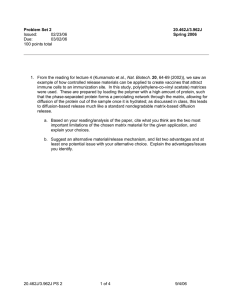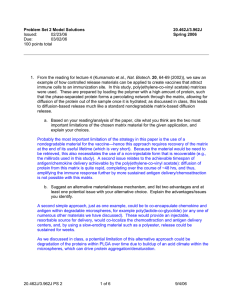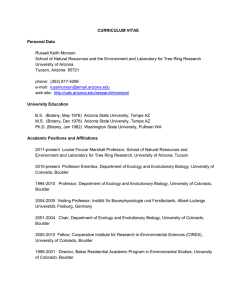Cell Transport & Homeostasis Reading Guide
advertisement
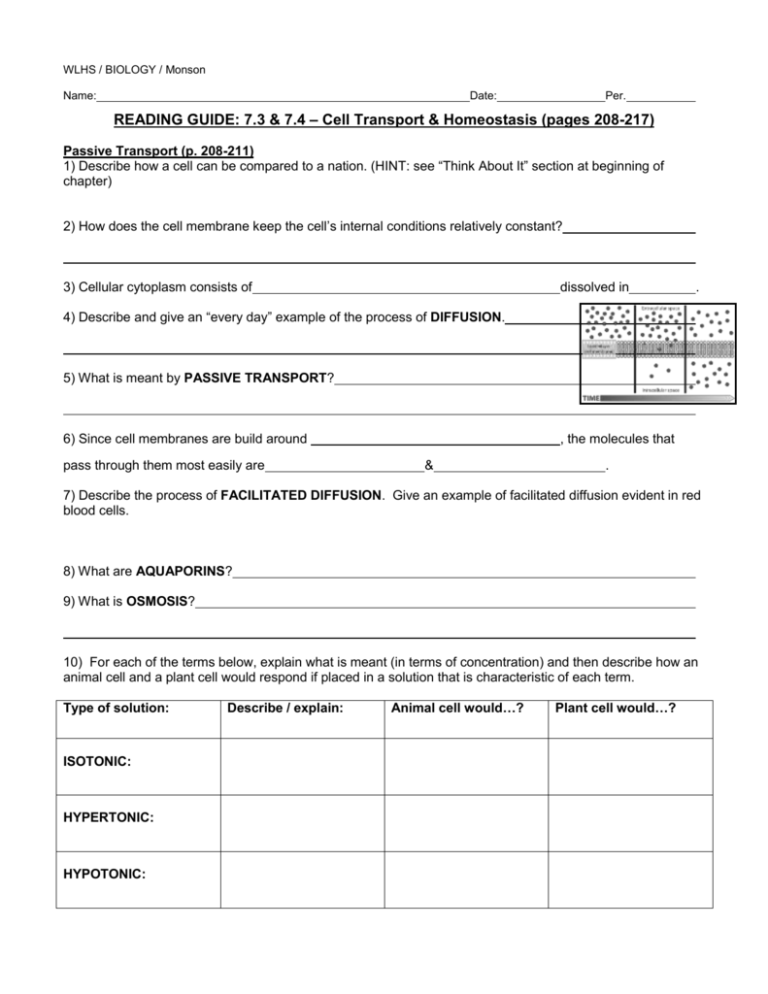
WLHS / BIOLOGY / Monson Name: Date: Per. READING GUIDE: 7.3 & 7.4 – Cell Transport & Homeostasis (pages 208-217) Passive Transport (p. 208-211) 1) Describe how a cell can be compared to a nation. (HINT: see “Think About It” section at beginning of chapter) 2) How does the cell membrane keep the cell’s internal conditions relatively constant? 3) Cellular cytoplasm consists of dissolved in . 4) Describe and give an “every day” example of the process of DIFFUSION. 5) What is meant by PASSIVE TRANSPORT? 6) Since cell membranes are build around pass through them most easily are , the molecules that & . 7) Describe the process of FACILITATED DIFFUSION. Give an example of facilitated diffusion evident in red blood cells. 8) What are AQUAPORINS? 9) What is OSMOSIS? 10) For each of the terms below, explain what is meant (in terms of concentration) and then describe how an animal cell and a plant cell would respond if placed in a solution that is characteristic of each term. Type of solution: ISOTONIC: HYPERTONIC: HYPOTONIC: Describe / explain: Animal cell would…? Plant cell would…? 11) What is OSMOTIC PRESSURE? 12) Explain why most cells in large organisms (like us!) are NOT in danger of bursting due to osmotic pressure. Active Transport (p. 212-213) 13) What is ACTIVE TRANSPORT? 14) How are small molecules and ions moved across the cell membrane against their concentration gradient? 15) Distinguish between the two types of endocytosis: PHAGOCYTOSIS and PINOCYTOSIS. ● PHAGOCYTOSIS: ● PINOCYTOSIS: Homeostasis & Cells (p, 214-217) 16) What is meant by HOMEOSTASIS? 17) Study / Read Figures 7-22 and 7-23 on page 215. Summarize the two examples of specialized cells shown in this figure. (What are their functions? How do their structures enable them to perform their specialized functions?) Specialized Cell Type: Functions: Structure(s) enabling functions? Human Trachea Epithelium Pine Pollen 18) List the levels of organization (from smallest to largest) present in multicellular organisms.
